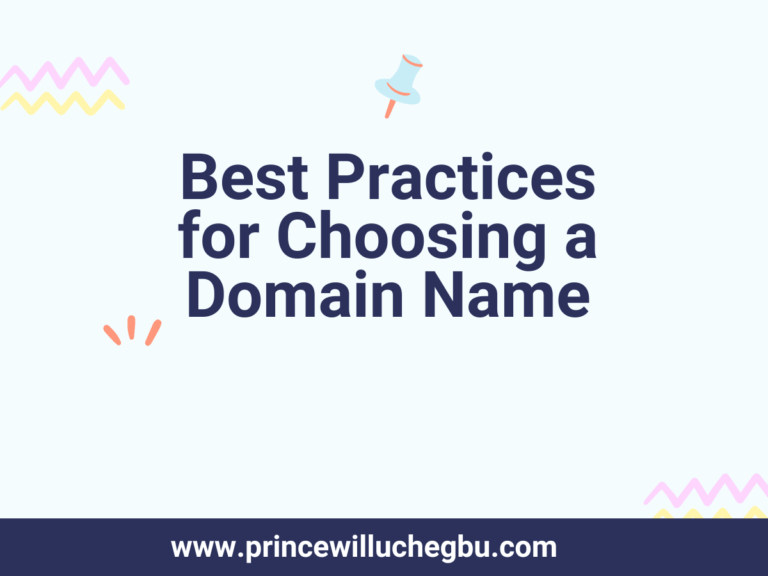8 Best Blog Hosting Companies in 2024
Choosing the best blog hosting company can be very challenging, especially for a newbie. For instance, how do you know what’s considered “best” as someone wet in the ear? I remember when I started my very first ever blog in 2016; I didn’t even know that certain hosting companies are better than others. Or that the blogging platform of choice work better with certain hosting plans.
All I wanted was to have my blog up and running; little did I know that choosing the wrong hosting company could mar my aspirations.
Back then, Google’s user experience policies weren’t as strict as they are today. Hence, I could afford to have a hosting company that misbehaves and still get my content ranked. Not anymore!
If a user visits your blog and it takes longer to load or the webpage is unavailable due to server issues from the hosting company, Google and other search engines record it as a bad user experience. Because of that, Google will demote the content and blog because they won’t want users to have that experience continuously.
The hosting company or hosting account is the foundation of your blog. And like Gordon B. Hinckley would say, “You can’t build a great building on a weak foundation. You must have a solid foundation if you’re going to have a strong superstructure.”
Knowing the right hosting would require that you know concepts such as Unlimited Bandwidth, Maximum Uptime, security, ease of navigation, etc.
I’ve taken away the guesswork to list the best hosting companies available out there for you based on factors such as customer support team, SEO tools, load times, automatic backups among other things.

8 Best Blog Hosting Companies in 2024
1. SiteGround
SiteGround is actually one of the three companies that are recommended by WordPress themselves as a recommended host.
While SiteGround is an excellent choice for bloggers and website owners who prioritize ease of setup, security, and outstanding customer support team. However, it might not be the best considering the storage limits and higher renewal costs even for the basic plan.
Pros of SiteGround:
- WordPress Endorsement: One of the three hosts officially recommended by WordPress.
- 1-click WordPress Installation: Ideal for quickly setting up WordPress or WooCommerce sites.
- Free SSL Certificate: SiteGround provides free SSL Certificate for securing transactions and protecting user data, at no extra cost.
- Customer Support Team: Highly rated 24/7 support via chat, phone, and tickets.
- Performance: Excellent maximum uptime and faster load time speeds.
Cons of SiteGround:
- Pricing: Competitive initial pricing, but renewal rates are high.
- Storage Limitations: The basic plan offers 10 GB of storage, suitable for one site and around 10,000 monthly visits, which may be restrictive for content-heavy sites.
- Renewal Fees: Initial discounts give way to significantly higher costs upon renewal.
- Availability: Not accessible in all countries, including India.
Key Considerations:
- Bandwidth and Uptime: Reliable uptime and sufficient bandwidth ensure your site remains accessible and performs well.
- Page Speed: Fast loading times enhance user experience and boost SEO rankings.
- Scalability: If you anticipate significant growth or need extensive storage, you may need to consider higher-tier plans or different hosts.
2. Bluehost
Bluehost is a popular choice due to its WordPress recommendation and affordable initial pricing. However, potential performance issues and high renewal costs should be weighed before committing. Bluehost also offers an excellent 24/7 support service, which I really commend them for.
Below are the pros and cons from my experience.
Pros:
- WordPress Endorsement: Officially recommended by WordPress.
- Popularity and Trust: One of the most well-known and trusted hosting companies.
- Affordable Initial Plans: Competitive pricing for new users.
- Free Domain for the First Year: Included with hosting plans, adding value.
Cons:
- Overpricing: As usual, renewal rates are higher than the initial sign-up costs.
- Slow Page Speed: Past users have reported slow loading times, which can negatively impact user experience and SEO.
- Affiliate-Driven Popularity: Much of Bluehost’s popularity stems from its early adoption of affiliate marketing, not necessarily superior service.
- Aggregated Services: They often acquire smaller hosting companies, which can affect service consistency.
Key Considerations:
- Customer Support: Bluehost offers 24/7 support, but user experiences vary.
- Performance: While initial prices are attractive, ensure you are comfortable with potential performance issues and higher renewal rates.
- Scalability: Bluehost offers various plans, but consider if their performance meets your site’s growth needs. Plus, you can always talk to their support team about your website needs before choosing a plan.
Receive Un-Google-Able Strategies for the Modern World. Join Princewill Uchegbu’s Whatsapp Group.
3. GoDaddy
GoDaddy is primarily known for its domain registration services, but its hosting services are generally overpriced and come with several drawbacks, including a confusing user interface and questionable customer support. If you are looking for better value and a more user-friendly experience, other hosting providers might be more suitable.
Pros:
- Phone Support: Available 24/7 for customer assistance.
- Domain Services: Known for domain registration services.
Cons:
- Overpricing: Generally more expensive than competitors, especially for hosting.
- Aggressive Upselling: Often pushes additional services and features that may not be necessary.
- Confusing User Interface: Many users find the interface for creating websites to be unintuitive.
- Poor Customer Support: Reports of rude and unhelpful support experiences.
- Marketing-Driven Costs: A significant portion of costs goes towards extensive marketing campaigns.
Key Considerations:
- Value for Money: While GoDaddy is well-known, better value can be found with other hosts offering more competitive pricing and better features.
- Ease of Use: If a user-friendly interface is important, GoDaddy may not be the best choice.
- Customer Experience: Consider the quality and responsiveness of customer support, especially if you anticipate needing frequent assistance.
4. A2 Hosting
A2 Hosting is a strong choice for those prioritizing site speed and performance. However, slightly lower uptime and past security issues might be a concern. Its interface may also be challenging for beginners, so consider your technical comfort level when choosing this provider.
Pros:
- Speed: Known for being one of the fastest hosting providers.
- Competitive Pricing: Offers good value for the speeds provided.
- Developer-Friendly: Offers a range of tools and features for more advanced users.
Cons:
- Uptime: Uptime of 99.96% is slightly below industry leaders, meaning occasional downtime.
- Security Concerns: Suffered a major hack a few years ago and has struggled to recover fully.
- Complex Interface: The backend can be confusing, making it less suitable for beginners.
- Customer Support: Mixed reviews on the quality and responsiveness of customer support.
Key Considerations:
- Performance vs. Uptime: While speed is a major strength, consider if the lower uptime might affect your site’s reliability.
- Security Track Record: Evaluate how important recent security issues are to your decision.
- User Experience: If you are new to website hosting, the complex interface might pose a challenge.
- Psychology in Advertising- Lessons from Starlink’s Ad Campaign
- Why 80% of Businesses Will Fail in 5 Years—and How to Avoid It
- Stay Engaged: Why Regular Customer Communication is Key to Beating Competitors
5. HostGator
HostGator is a popular choice for WordPress hosting, offering good customer service and competitive initial pricing. However, since it shares ownership with Bluehost, it’s wise to compare current deals and consider potential performance issues before committing. If choosing between the two, opt for the one with the better current pricing and terms.
Pros:
- Customer Service: Known for good customer support, available 24/7.
- Affordable Prices: Competitive pricing, especially for new users.
- Ease of Use: User-friendly interface, suitable for beginners.
Cons:
- Ownership: Owned by the same parent company as Bluehost, leading to similar issues.
- Pricing Variability: Prices can fluctuate, making it necessary to compare with Bluehost for the best deal.
- Performance: Similar performance issues as Bluehost, including slow page speeds and uptime concerns.
- Upselling: Tends to upsell additional features and services that may not be necessary.
Key Considerations:
- Price Comparison: Check current discounts and deals for both HostGator and Bluehost to determine the better value.
- Long-Term Costs: Be aware of higher renewal rates after the initial term.
- Service Reliability: Consider user reviews and performance reports to gauge service consistency.
6. WP Engine
WP Engine is a top-tier hosting provider known for its speed, reliability, and excellent customer support. It’s ideal for users who prefer a managed hosting solution and are willing to pay a premium for these services. However, its high cost may not be suitable for everyone, especially those with smaller budgets or simpler hosting needs. If you can afford it and value hassle-free, high-performance hosting, WP Engine is a great option.
Pros:
- Speed and Reliability: Known for exceptional speed and high uptime.
- Customer Support: Offers excellent, professional customer support available 24/7.
- Managed WordPress Hosting: Ideal for those who don’t want to deal with technical aspects, as WP Engine handles updates, security, and performance optimization.
- Scalability: Suitable for large sites with high traffic and complex needs.
Cons:
- High Cost: Significantly more expensive than most other hosting providers, making it less suitable for budget-conscious users.
- Overpriced for Some: While it offers premium services, the cost may not be justified for smaller sites or those with simpler needs.
Key Considerations:
- Budget: Evaluate if the premium price aligns with your budget and the value you place on top-tier performance and support.
- Technical Needs: If you prefer a hands-off approach to hosting and can afford the higher price, WP Engine is a strong choice.
- Long-Term Investment: Consider if the long-term benefits and reliability justify the initial and ongoing costs.
7. Inmotion
InMotion offers decent speed and solid customer support, but its higher pricing and relatively slower performance make it less attractive compared to other hosting providers. The 90-day money-back guarantee is a positive initiative, allowing users to try the service without a long-term commitment. If cost and speed are critical factors, you might find better value with other hosting companies.
Pros:
- Good Speed: Offers decent speed compared to many other hosting providers.
- Customer Support: Provides 24/7 customer support with knowledgeable representatives.
- Money-Back Guarantee: 90-day money-back guarantee, which is longer than most competitors.
Cons:
- Higher Cost: Generally more expensive than other hosting options without offering significant additional features.
- Slower Performance: Despite decent speeds, it is considered one of the slower providers compared to top-tier options.
- Value for Money: The higher price doesn’t necessarily translate to better performance or features.
Key Considerations:
- Cost vs. Benefits: Consider whether the higher cost is justified for your specific needs, especially given the availability of more affordable and faster options.
- Support Quality: While customer support is good, evaluate if this is a top priority for you compared to other features like speed and cost.
- Trial Period: The 90-day money-back guarantee allows you to test their services risk-free.
- Want to Make Money from your Passion? Here’s How to
- Expert Revealed: How To Make Money Blogging in 2024 (18 Proven Ways)
- How Long Does It Take To Make Money From Blogging
8. DreamHost
DreamHost, though recommended by WordPress, falls short in several areas, including cost, speed, and reliability. The higher prices and poor uptime make it less appealing compared to other hosting options. If unlimited traffic and a long money-back guarantee are important to you, it might still be worth considering. However, for better performance and value, you might want to explore other hosts.
Pros:
- WordPress Endorsement: One of the three hosting companies officially recommended by WordPress.
- Money-Back Guarantee: Offers a 97-day money-back guarantee, one of the longest in the industry.
- No Traffic Limits: Allows unlimited traffic on all plans.
Cons:
- Higher Costs: Generally more expensive compared to other hosting providers.
- Slower Performance: Known for slower speeds compared to competitors.
- Poor Uptime: Lower uptime rates, which can affect site reliability.
- Rising Prices: Prices tend to increase over time despite the service quality not being on par with the competition.
Key Considerations:
- Cost vs. Performance: Weigh the higher costs against the performance issues, including speed and uptime.
- Long-Term Commitment: Consider if the long money-back guarantee provides enough assurance to test their services.
- Unlimited Traffic: Evaluate if the unlimited traffic feature is beneficial for your site’s needs.
FAQS | Best Blog Hosting Companies
How Do I Choose a Blog Host?
You’ve to consider your blog needs, the available funds and the reliability of the hosting company. Other factors to consider are the security features and support provided by the company as well as the storage space. It’s always better to get the opinion of an expert because every company will always blow their trumpets.
Do Blogs Need Web Hosting?
Absolutely! Without web hosting, the blog cannot be accessible on the internet. My analogy is that the domain name (e.g., www.princewilluchegbu.com) is the address on the internet, while the hosting itself is the building that houses everything in the address.
Which Hosting Is Best for Blogs?
There’s no absolute best hosting for blogs as it all depends on your capacity, blog need and the company. For instance, hosting company ABC may be offering a service that hosting company ZYX is not offering. Or, one company may compensate for its inadequacy using another service that the other company is not offering. But from my experience, the following companies have proven to be more reliable 99% of the time than others.
Final Thought
When it comes to choosing a hosting company, it’s paramount that you pay attention to a company that offers daily backups, even if the hosting plan doesn’t come with a daily backup. Also, if you’ve money to spend, going for a hosting account such as private server, dedicated hosting hosting or even a blog hosting plan with guarantee uptime is key.













